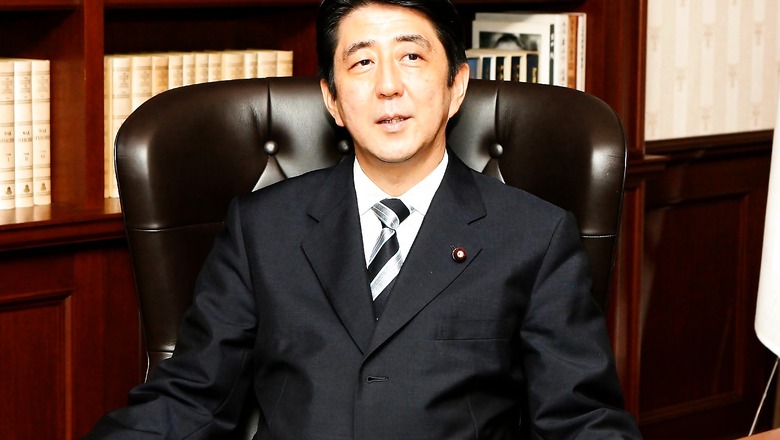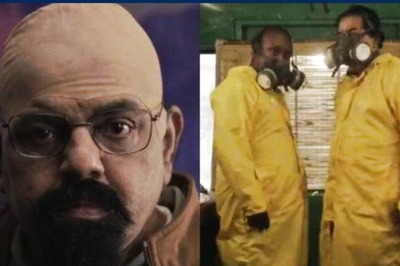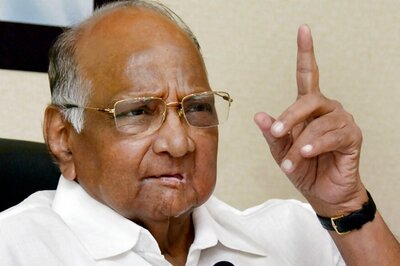
views
Friday, July 8, 2022. The day was inauspicious for India-Japan relations. Former Japanese Prime Minister Shinzo Abe, credited with boosting ties between the two nations, was confirmed dead after being shot at a campaign event in Nara city. He, hospital authorities said, was treated for more than 4.5 hours, but doctors were not able to save his life because of profuse bleeding.
The relations between India and Japan are bewitching. Despite being democracies and having a common adversary, both have very different polities and approaches to policymaking. “Neither India nor Japan had historically focused on each other when it came to addressing their respective security situations,” external affairs minister S Jaishankar writes in his book The India Way. “Yet, they both think similarly on the big issues of the day, especially in the last few years.”
He adds that the “realisation in two nations that they have little choice but to help shape their continent is now an impelling force of a new relationship”.
In this realisation, it would not be an exaggeration to say, Shinzo Abe, who holds the honour of being Japan’s longest-serving PM, played a vital role. After getting elected in 2006 for the first time, India was one of his top priorities.
When he was invited in 2007 to address the Indian Parliament, he spoke of “the confluence of two seas”, referring to the Indian and Pacific oceans, which, in his own words, was “bringing about a dynamic coupling as seas of freedom and of prosperity”. That coupling of seas further deepened, thanks to his efforts and his vision for a “broader Asia”.
Be it the strategic interests or cultural and technological exchanges, Shinzo Abe stayed committed to the common cause of the two countries. His significant and foremost contribution will always remain conceiving the idea of the QUAD, a group of four nations— Australia, India, Japan, and the USA— for strategic security dialogue in the Indo-Pacific region in 2007. This cooperation has put China in check, and thus irked it many times. The dialogue and parallel military exercises have opened the doors to exploring the Indo-Pacific region for India, and, not to mention the international resonance of concerns over the Belt and Road Initiative, the Chinese aspirational project.
To counter the Chinese influence further, under the leadership of Abe, India and Japan formed the Act East Forum and started building infrastructure projects in north-eastern India. The forum’s work expanded to Sri Lanka and Maldives, too, where India and Japan have built projects to counter the political influence of Beijing.
Abe was also pivotal in signing the Indo-Japan Civil Nuclear Deal, which made nuclear cooperation between the two democracies of the East possible. In December 2015, the memorandum for the deal was signed for the first time. Two years later, the deal became a reality, allowing India to purchase nuclear reactors with more than 1,000 MW capacity from Japan, to get state-of-the-art nuclear fabrication and breeder technology. Japan was initially adamant about pushing India for more nuclear non-proliferation but left those demands as time progressed.
Another essential thing Abe did was sign a deal to exchange technology on the bullet train during his visit to India in December 2015, apart from starting various flagship infrastructure projects like the dedicated freight corridor in India. Other than Abe, no other Japanese PM has made four visits to India.
Though Abe cooperated with former Prime Minister Manmohan Singh, he shared a special bonhomie with PM Narendra Modi. When the latter was still the chief minister of Gujarat, Abe used to follow a single foreigner on Twitter, and of course, that foreigner was Modi. They had known each other for seven years before 2014. When Modi was elected as Prime Minister of India, his first major foreign tour was to Japan. Post-2014, India and Japan saw a result of this bonhomie in various agreements related to technology and infrastructure.
In January 2021, Abe was rightly conferred with the Padma Vibhushan, the second-highest civilian award in India, for his contributions. He was indeed a pragmatic and proactive leader of Japan. His loss is not only Japan’s but equally India’s.
Harshil Mehta is an analyst who writes on international relations, diplomacy, and national issues. The views expressed in this article are those of the author and do not represent the stand of this publication.
Read all the Latest News, Breaking News, watch Top Videos and Live TV here.




















Comments
0 comment